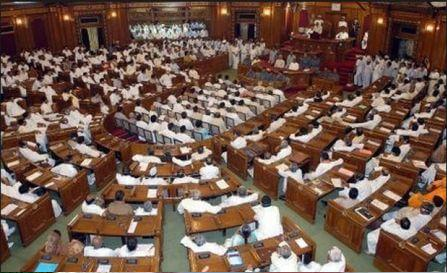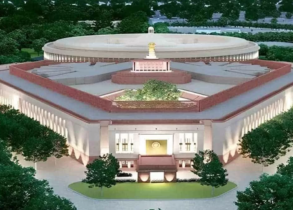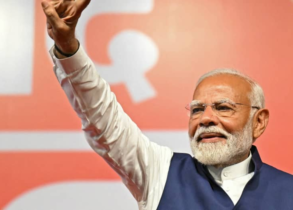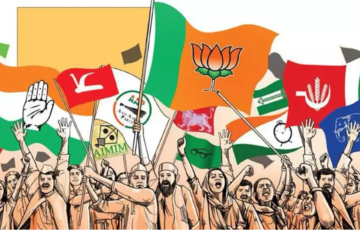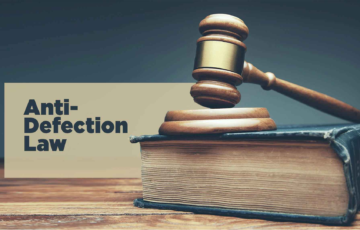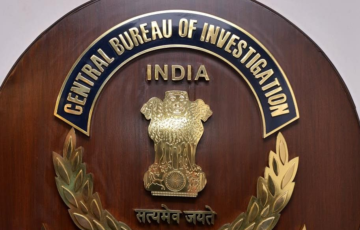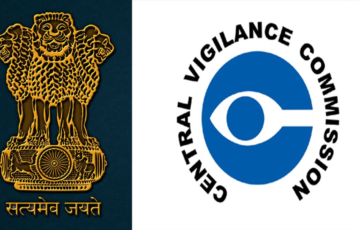STATE LEGISLATURE
Introduction
- The State Legislature’s primary goal is to create and pass state-specific bills. Members of the State Legislative Assembly have powers similar to Members of Parliament, but these powers are state-focused. The Constitution of India covers the State Legislative Assembly in Articles 168 to 212. India’s legislative system is bicameral, with some states having a Legislative Council in addition to the Legislative Assembly, similar to Parliament. The states with a Legislative Council are Andhra Pradesh, Telangana, Uttar Pradesh, Bihar, Maharashtra, and Karnataka.
Unicameral Vs Bicameral Legislatures
Unicameral
Advantages:
- Simplified Decision-Making: Unicameral legislatures can make decisions more quickly because there is only one legislative chamber. This can be advantageous in times of crisis or when prompt legislative action is required.
- Reduced Bureaucracy: Unicameral legislatures often have fewer layers of bureaucracy, making the legislative process more streamlined and cost-effective.
- Lower Probability of Gridlock: Unicameral systems are less prone to gridlock since there is only one legislative body, which can facilitate the passage of laws and budgets.
Disadvantages:
- Lack of Checks and Balances: Unicameral systems may lack the checks and balances that bicameral systems provide. This can potentially lead to hasty or ill-considered legislation.
- Limited Representation: In larger and more diverse countries, a single legislative body may struggle to adequately represent the interests of different regions and demographics.
Bicameral State:
Advantages:
- Checks and Balances: Bicameral legislatures provide a system of checks and balances. The two chambers can review and revise each other’s work, reducing the likelihood of poorly thought-out laws.
- Enhanced Representation: Bicameral systems can provide better representation for different regions and groups within a country. For example, in a federal system, one chamber may represent states or provinces, while the other represents the population directly.
- Deliberation: The existence of two chambers allows for more extensive debate and discussion, potentially leading to better-crafted legislation.
Disadvantages:
- Slower Decision-Making: Bicameral systems can be slower in making decisions, especially when the two chambers have differing opinions. This can lead to delays in passing laws and budgets.
- Increased Complexity: Managing and coordinating the two chambers can be more complex and costly, and it may also create opportunities for political gridlock.
ABOLITION OF CREATION OF LEGISLATIVE COUNCILS
- The choice between a unicameral or bicameral legislature often depends on a country’s specific circumstances, its history, and its constitutional framework. Both systems have their merits and demerits, and the effectiveness of each can vary based on how well they are designed and how they function in practice.
- Legislative Council (Vidhan Parishad): The Legislative Council is the upper chamber of a bicameral legislature in India. It is mentioned in Article 169 of the Indian Constitution.
- State Variation: While the Legislative Council is mentioned in Article 169, it is not a mandatory requirement for every state in India. This recognition stems from the understanding that not every state may be financially or otherwise equipped to have a bicameral legislature.
- Establishment and Abolition: The creation or abolition of the Legislative Council is governed by Article 169. In order to do so, the state’s Legislative Legislature must pass a resolution with the support of more than half of the entire strength of the legislative assembly.
- This provision allows states to make decisions regarding the existence of their Legislative Council based on their specific needs and circumstances. It provides flexibility in the structure of state legislatures, reflecting the federal nature of India’s political system.
COMPOSITION OF HOUSES
Composition of Legislative Assemblies (Vidhan Sabha)
- This is covered under Article 170 of the Indian Constitution. Article 170 details the organization and composition of the Legislative Assemblies in the states of India. It defines the number of members, their election, and other related matters for the lower house of the state legislature.
- The Legislative Assembly is the lower house of the state legislature, and its members are elected by the people. The maximum strength of a state’s Legislative Assembly should not exceed 500 members, and the minimum strength should not be less than 60 members.
- Variations in Assembly Size: While the maximum and minimum limits are set, some states like Sikkim, Arunachal Pradesh, and Goa have been allowed to have smaller legislative assemblies due to their specific circumstances.
- Territorial Constituencies: The allocation of seats in the Legislative Assembly is based on territorial constituencies. The aim is to maintain a consistent ratio between the population of each constituency and the number of seats allotted to it, ensuring that representation is proportional.
- Reserved Seats for SC and ST: Specific provisions are made for the representation of Scheduled Castes (SC) and Scheduled Tribes (ST) in the Legislative Assembly to ensure their political participation and representation.
- Anglo-Indian Representation: If the Governor believes that the Anglo-Indian community is underrepresented in the assembly, the Governor can nominate one member from the Anglo-Indian community to address this underrepresentation.
Composition of Legislative Council (Vidhan Parishad)
- Article 171 of the Indian Constitution is dedicated to specifying the composition of the Legislative Council. It outlines the number of members, their election or nomination, and other relevant aspects of the upper house of the state legislature.
- Limit on Total Members: The total number of members in the Legislative Council should not exceed one-third of the total members in the state Legislative Assembly. This ensures that the Legislative Council remains a smaller chamber in a bicameral state legislature.
- Minimum Membership: In any case, the Legislative Council should have a minimum of 40 members, ensuring a reasonable level of representation.
- Different Categories of Members: The composition of the Legislative Council can be categorized as follows:
- One-Third Elected from Local Bodies: One-third of the members should be elected from district boards, municipalities, and other local authorities as specified by Parliament through legislation. This ensures representation from local government bodies.
- One-Twelfth from Graduates: One-twelfth of the members should be elected from individuals who have resided in the state for at least three years and have graduated from a university within India.
- One-Twelfth from Teachers: One-twelfth of the members should be elected from individuals who have worked in the teaching profession for at least three years in educational institutions within the state.
- One-Third by Legislative Assemblies: One-third of the members should be elected by the members of the state Legislative Assemblies. Importantly, none of them should simultaneously be a member of the Legislative Assembly.
- Remainder Nominated by the Governor: The remaining members are nominated by the Governor as per the provisions established by law. This allows for the inclusion of experts, professionals, and other individuals with special qualifications.
Membership
Qualifications
- Citizenship: The candidate must be a citizen of India.
- Oath or Affirmation: The candidate must make and subscribe to an oath or affirmation before the person authorized by the Election Commission for this purpose.
- Age Requirements: The minimum age requirement is not less than 30 years for the Legislative Council and not less than 25 years for the Legislative Assembly.
- Other Qualifications: The candidate must possess any other qualifications prescribed by Parliament, which are detailed in the Representation of People Act, 1951.
Additional Qualifications in the Representation of People Act, 1951:
- For election to the Legislative Council, a person must be an elector for an assembly constituency in the concerned state and a resident of the state to be eligible for the governor’s nomination.
- To be elected to the Legislative Assembly, a person must be a registered voter in the state.
- Members of scheduled castes or tribes can run for seats designated for them, and members of these groups can also contest seats that are not reserved for them.
Oath or Affirmation:
- Every member of the State Legislature must make and subscribe an oath or affirmation before the governor or a person appointed by the governor.
- The oath or affirmation includes a commitment to bear true faith and allegiance to the Constitution of India and to uphold the sovereignty and integrity of India.
- Without taking the oath, a member cannot participate in the proceedings, vote, or receive the privileges and immunities of the state legislature.
- There is a penalty of Rs. 500 per day for a person who sits or votes as a member in a house without taking the oath.
- Members of the State Legislature are entitled to receive salaries and allowances as determined by the state legislature.
These qualifications and requirements are established to ensure that elected representatives meet certain criteria and responsibilities when serving in the State Legislature.
| Constitutional Provisions for State Legislature
Articles 168 to 212 in Part VI of the Indian Constitution deal with various aspects of the state legislature, including its organization, composition, duration, officers, procedures, privileges, powers, and more. These articles outline the framework for the functioning of state legislatures in India. |
Disqualifications
- Disqualifications for Membership in State Legislature (Article 191):
- A person shall be disqualified for being a member of the legislative assembly or legislative council if:
- Holding an Office of Profit: They hold any office of profit under the union or state government, except for the office of a minister or any other office exempted by the state legislature. The idea is to prevent a conflict of interest between legislative and executive roles.
- Unsound Mind: They are declared to be of unsound mind by a court.
- Undischarged Insolvency: They are an undischarged insolvent.
- Foreign Citizenship: They are not a citizen of India or have voluntarily acquired the citizenship of a foreign state. This provision aims to ensure that members of the state legislature are loyal to India.
- Disqualification Under Parliament-Made Law: They are disqualified under any law made by the Parliament. This provides flexibility for the Parliament to enact disqualification criteria.
Disqualifications under the Representation of the People Act, 1951:
- Election Offenses and Corrupt Practices: A person must not have been found guilty of certain election offenses or corrupt practices in elections.
- Conviction Resulting in Imprisonment: A person must not have been convicted of any offense that results in imprisonment for two or more years, with the exception that detention under a preventive detention law is not a disqualification.
- Failure to Lodge Election Expenses Account: A person must not have failed to submit an account of their election expenses within the stipulated time.
- Interest in Government Contracts: A person must not have an interest in government contracts, works, or services.
- Involvement in Government Corporations: A person must not be a director, managing agent, or hold an office of profit in a corporation in which the government holds at least 25 percent share.
- Dismissal from Government Service: A person must not have been dismissed from government service for corruption or disloyalty to the state.
- Convictions for Offenses: A person must not have been convicted for promoting enmity between different groups or for the offense of bribery.
- Punishment for Social Crimes: A person must not have been punished for preaching and practicing social crimes such as untouchability, dowry, and sati.
- Governor’s Decision: The Governor’s decision regarding these disqualifications is final, although the Governor is required to obtain the opinion of the Election Commission and act accordingly (Article 192).
Disqualifications on Ground of Defection (Tenth Schedule):
- The Tenth Schedule of the Indian Constitution deals with disqualifications on the ground of defection. A person can be disqualified for being a member of either house (Legislative Assembly or Legislative Council) for defection.
- The question of disqualification under the Tenth Schedule is decided by the Speaker, in the case of the Legislative Assembly, and the Chairman, in the case of the Legislative Council.
- In a 1992 ruling, the Supreme Court held that the decisions of the Chairman or Speaker regarding defection are subject to judicial review, adding a layer of accountability to the process.
- These disqualifications are important to ensure the integrity and ethical conduct of members of the state legislature and to maintain the stability of political parties within the legislature.
VACATION OF SEATS
- Double Membership: A person cannot simultaneously hold seats in both Houses (Legislative Assembly and Legislative Council) of the state legislature. If elected to both, the member’s seat in one of the Houses becomes vacant as per the provisions of a state legislature-enacted statute.
- Disqualification: If a member of the state legislature is disqualified for any of the reasons specified under disqualifications, their seat becomes vacant. This includes various offenses or violations that can lead to disqualification.
- Resignation: A member may voluntarily resign their seat by submitting a written resignation to the Chairman of the Legislative Council or the Speaker of the Legislative Assembly, depending on their House. Once the resignation is accepted, the seat becomes vacant.
- Absence: If a member fails to attend all meetings of the House for sixty consecutive days without authorization, their seat may be declared vacant by that House.
- Other Cases: A member must resign from either House of the state legislature if their election is invalidated by a court, if they are expelled by the House, if they are elected to the office of President or Vice-President of India, or if they are appointed to the position of Governor of a state.
Presiding Officers
Speaker and Deputy Speaker
- Speaker and Deputy Speaker: Every legislative assembly in India should have a Speaker and a Deputy Speaker. These individuals serve important roles in presiding over the proceedings and maintaining order in the assembly.
- Article 178: Article 178 of the Indian Constitution outlines the requirement for a Speaker and Deputy Speaker in the Legislative Assembly. It specifies that these positions should be chosen from among the members of the Legislative Assembly.
- Vacancy: In the event that the offices of Speaker and Deputy Speaker become vacant due to various reasons such as resignation, disqualification, or any other cause, it becomes the duty of the Legislative Assembly to choose new individuals to fill these positions. The selection of the Speaker and Deputy Speaker typically involves an election within the assembly.
Process of vacation and resignation of, and removal from, the offices of Speaker and Deputy Speaker
- The Speaker or Deputy Speaker shall vacate their office if they cease to be a member of the Assembly. This means that their membership in the Assembly is a prerequisite for holding the position.
- The Speaker or Deputy Speaker has the option to resign from their office at any time by submitting a written resignation. If the Speaker wishes to resign, the resignation is addressed to the Deputy Speaker, and if the Deputy Speaker wishes to resign, it is addressed to the Speaker.
- The Speaker or Deputy Speaker can be removed from their office by a resolution passed by the Assembly. This resolution must receive a majority vote of all the then members of the Assembly.
- Notice for Removal Resolution: A resolution for the removal of the Speaker or Deputy Speaker under clause (c) cannot be moved without at least fourteen days’ notice. This notice period provides time for discussion and consideration of the resolution.
- Speaker’s Tenure During Dissolution: In the event of the Assembly being dissolved, the Speaker shall not vacate their office until immediately before the first meeting of the Assembly that takes place after the dissolution. This provision ensures continuity in the Speaker’s role during transitional periods.
Powers and Function of Speaker
- Presiding Over Sessions: The Speaker presides over the sessions of the Legislative Assembly and is responsible for maintaining discipline and order during the proceedings. This role is similar to the Speaker of the Lok Sabha, as specified in Article 93 of the Indian Constitution.
- Determining Money Bills: The Speaker has the authority to decide whether a bill is a Money Bill or not. Money Bills are a category of bills related to taxation and government finances. The decision of the Speaker in this regard is final and cannot be challenged in a court of law.
- Approval for Sending Money Bills: Money Bills, once approved by the Speaker, are sent to the Legislative Council (if the state has one) for consideration.
- Quorum Check: The Speaker ensures that there is a necessary quorum (minimum number of members required for the assembly to conduct its business) before proceeding with the business of the House.
- Adjournment and Suspension: The Speaker has the power to adjourn or suspend the sitting of the Legislative Assembly, particularly in cases where there is a lack of quorum or to maintain the discipline of the House.
- Disciplining Members: The Speaker has the authority to suspend or expel a member from the Legislative Assembly in the event of unruly behavior or violations of the rules and decorum.
- Non-Participation in Debates: The Speaker refrains from participating in the debates of the assembly and maintains a neutral and impartial role.
- Casting Votes in Tiebreak: The Speaker only casts their vote in the case of a tie, which helps in reaching a decision when the votes are evenly divided.
Chairman and Deputy Chairman of the Legislative Council
- Article 182 of the Indian Constitution states that the Legislative Council must choose two of its members to serve as Chairman and Deputy Chairman. These individuals play important roles in presiding over the proceedings and maintaining order in the Council.
- The Chairman and Deputy Chairman should be chosen as soon as their offices become vacant. This is to ensure the continuous and smooth functioning of the Legislative Council.
Reasons for Removal or Resignation:
- Article 183 of the constitution outlines the reasons for the removal or resignation of the Chairman and Deputy Chairman:
- They should not continue in their positions if they cease to be members of the Legislative Council. Membership is a prerequisite for holding these positions.
- They have the option to resign by sending a written resignation letter to each other, signifying their voluntary decision to step down from their respective roles.
- Removal from the positions of Chairman and Deputy Chairman can also occur through a resolution passed by the Legislative Council. For this resolution to be effective, it requires a majority vote of the members in support of it.
- An important point to note is that a notice of intention to move a resolution for their removal should be given at least 14 days in advance. This notice period allows for discussion and consideration of the resolution.
| Powers of the Deputy Chairman or other person who performs the duties of the office of, or act as, Chairman |
|
Powers and Functions
Legislative Functions
- Jurisdiction of State Legislature: The State Legislature has the authority to formulate laws on subjects that fall under the State List and Concurrent List of the Constitution. However, if there is a contradiction between a Union (central) law and a State law on the same subject, the law passed by the Parliament (Union) shall prevail.
- Types of Bills: There are two main types of bills: Ordinary Bills and Money Bills. Ordinary bills can be introduced in either house of the State Legislature if it is bicameral, while Money Bills must be initially introduced in the Vidhan Sabha (Legislative Assembly).
- Amendment Process: In the case of an amendment to a bill, it should be agreed upon by both houses of the State Legislature. Bills pending in the Legislative Council that are not passed by the Legislative Assembly do not lapse upon the dissolution of the Legislative Assembly.
- Lapsing of Bills: However, if a bill is pending in the Legislative Assembly or if a bill passed by the Legislative Assembly is pending in the Legislative Council when the Legislative Assembly is dissolved, the bill will lapse. It will not be carried over to the next term.
- Governor’s Approval: After a bill is passed by both houses of the State Legislature, it is sent to the Governor for approval. If the Governor sends the bill back for reconsideration, the Legislature has the option to pass it again. The Governor must then either give their assent or reserve the bill for the consideration of the President.
Comparing legislative Procedure in the Parliament and State Legislature
Ordinary Bills
| Aspect of Legislative Procedure | Indian Parliament | State Legislature |
| Introduction of Bills | Can be introduced in either the Lok Sabha or the Rajya Sabha. | Can be introduced in either the Legislative Assembly (Vidhan Sabha) or the Legislative Council (Vidhan Parishad) where applicable. |
| Passage of Bills | Must be passed by both the Lok Sabha and the Rajya Sabha. | Must be passed by both the Legislative Assembly and the Legislative Council where applicable. |
| Money Bills | Must be introduced in the Lok Sabha. | Must be introduced in the Legislative Assembly. |
| Bill Rejected or Disagreement | In case of a disagreement between the two houses (Lok Sabha and Rajya Sabha), a joint session can be called, and the decision is made by a simple majority vote. | In case of a disagreement between the two houses (Legislative Assembly and Legislative Council), the Legislative Assembly’s decision prevails. |
| Timeframe for Consideration | No specific time limit for consideration, but there is a process for committees to review bills. | Similar to the Indian Parliament, there is no specific time limit, and committees may review bills. |
| Governor’s Assent | After passing both houses, the bill is sent to the President for assent. | After passing both houses, the bill is sent to the Governor for assent. |
| Delayed Assent | If the President or Governor does not provide assent, it can be kept in abeyance until their approval is granted.
|
If the Governor does not provide assent, the bill may be sent back to the State Legislature for reconsideration or reserved for the President’s consideration, depending on the case. |
Money Bills
| Aspect of Legislative Procedure | Indian Parliament (Lok Sabha and Rajya Sabha) | State Legislature (Legislative Assembly and Legislative Council where applicable) |
| Introduction of Money Bills | Must be introduced in the Lok Sabha (House of the People), and the Speaker of the Lok Sabha certifies a bill as a money bill. The Rajya Sabha (Council of States) can only make recommendations on such bills. | Must be introduced in the Legislative Assembly (Vidhan Sabha), and the Speaker of the Legislative Assembly certifies a bill as a money bill. The Legislative Council (Vidhan Parishad) can make recommendations, but it cannot veto money bills. |
| Consideration and Passage | Money bills must be passed by both houses: Lok Sabha and Rajya Sabha. The process includes three readings and detailed consideration. | Money bills must be passed by both houses: Legislative Assembly and Legislative Council (where applicable). The process includes three readings and detailed consideration. |
| Role of the Second House
|
The Rajya Sabha can only make recommendations on money bills but cannot veto them. If the Rajya Sabha does not return the bill within 14 days, it is considered passed. | The Legislative Council can make recommendations on money bills, but the Legislative Assembly’s decision prevails. If the Legislative Council does not return the bill within a specified period, it is considered passed. |
| Amendments and Reconsideration | Amendments to money bills can be proposed by either house, but the final decision rests with the Lok Sabha. If amendments are made by the Rajya Sabha, the bill is returned to the Lok Sabha for consideration. | Similar to the Indian Parliament, amendments to money bills can be proposed, but the final decision rests with the Legislative Assembly. If amendments are made by the Legislative Council, the bill is returned to the Legislative Assembly for consideration. |
| Assent
|
After passing both houses, money bills are sent to the President for their assent. The President can either give assent, withhold assent, or return the bill for reconsideration. If the bill is reconsidered and passed again, the President must give assent. | After passing both houses, money bills are sent to the Governor for their assent. The Governor can either give assent, withhold assent, or return the bill for reconsideration. If the bill is reconsidered and passed again, the Governor must give assent. |
Financial Functions
- Control Over State Finances: The State Legislature exercises control over the finances of the state, including the power to pass money bills that pertain to financial matters.
- Introduction of Money Bills: Money bills can only be introduced in the Vidhan Sabha (Legislative Assembly), which is the lower house of the State Legislature. Money bills typically deal with matters such as government expenditure, taxation, borrowing, and related financial issues.
- Procedure for Money Bills: Money bills cannot be introduced by a private member. They must be introduced by a Minister on the recommendations of the Governor, ensuring that such bills have the government’s backing.
- Certification as Money Bill: In cases where there is confusion or disagreement regarding whether a particular bill qualifies as a money bill, the Speaker of the Vidhan Sabha makes the determination.
- Passage of Money Bills: Money bills, once introduced and passed by the Vidhan Sabha, need to be sent to the Vidhan Parishad (Legislative Council), which is the upper house of the State Legislature. The Vidhan Parishad must return the bill within 14 days, either with or without recommendations.
- Consideration of Recommendations: The Vidhan Sabha may accept or reject the recommendations made by the Vidhan Parishad. Once the legislative process in both houses is completed, the money bill is sent to the Governor for their assent.
Privileges
- Freedom of Speech and Expression: Article 105(1) of the Indian Constitution provides MPs with the freedom of speech and expression during parliamentary proceedings. Similarly, Article 194 extends the same privilege to members of State Legislatures.
- No Liability for Parliamentary Actions: According to clause (2) of Article 105 for MPs and Article 194 for State Legislators, no member of Parliament or State Legislature can be held liable in any proceeding before any court for anything said or any vote given by them during the course of their parliamentary duties. This ensures that parliamentarians can express their views and cast their votes without fear of legal repercussions.
- Protection for Publication: These articles also provide protection to individuals who publish reports, papers, votes, or proceedings of Parliament or a State Legislature. If the publication is made by the respective parliamentary authority or any authority under it, those involved in the publication are not held liable.
- Limitations on Absolute Privilege: It’s important to note that this absolute privilege can only be invoked within the premises of the Parliament or State Legislature. Statements or actions made outside these premises may not be covered by this privilege and could potentially be subject to defamation laws.
UPSC PREVIOUS YEAR QUESTIONS
1. Consider the following statements: (2015)
1. The Legislative Council of a State in India can be larger in size than half of the Legislative Assembly of that particular State.
2. The Governor of a State nominates the Chairman of the Legislative Council of that particular State.
Which of the statements given above is/are correct?
(a) 1 only
(b) 2 only
(c) Both 1 and 2
(d) Neither 1 nor 2
2. Consider the following statements: (2018)
1. The Speaker of the Legislative Assembly shall vacate his/her office if he/she ceases to be a member of the assembly.
2. Whenever the Legislative Assembly is dissolved, the Speaker shall vacate his/her office immediately.
Which of the statements given above is/are correct?
(a) 1 only
(b) 2 only
(c) Both 1 and 2
(d) Neither 1 nor
3. Explain the constitutional provisions under which Legislative Councils are established. Review the working and current status of Legislative Councils with suitable illustrations.(2021)

